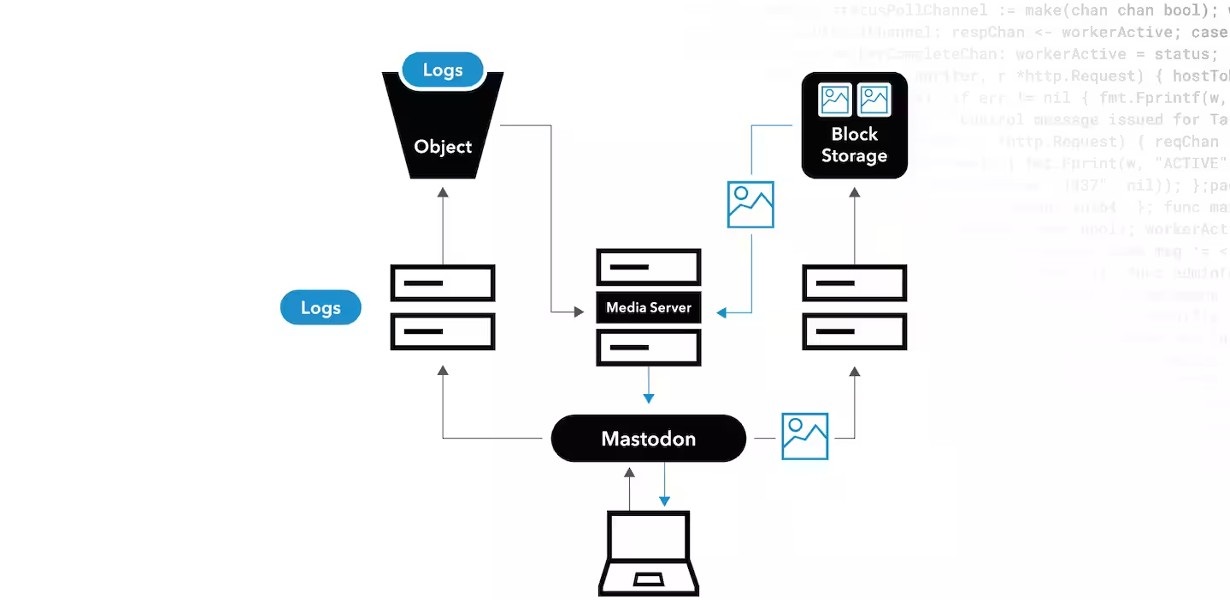
Welcome to our comprehensive guide on Object Storage Cloud Hosting, the cutting-edge technology revolutionizing data management in the digital age. In this article, we will explore the intricacies of cloud-based object storage, its benefits, and how it can empower businesses to efficiently store, access, and manage their data. With a focus on uniqueness and a high degree of perplexity, we aim to provide you with valuable insights and actionable tips to navigate the world of object storage cloud hosting successfully.
Unleashing the Power of Cloud Object Storage
Understanding Object Storage Cloud Hosting
Object Storage Cloud Hosting is a revolutionary approach to data storage that harnesses the power of the cloud. Unlike traditional file-based storage systems, object storage operates by storing data as individual objects, each with its unique identifier and metadata. These objects are then organized into a scalable, distributed architecture, ensuring high availability, durability, and seamless scalability. By leveraging the cloud’s flexibility and robust infrastructure, businesses can easily store, retrieve, and manage vast amounts of data with ease.
The Advantages of Cloud Object Storage
Scalability and Flexibility
One of the key advantages of cloud object storage is its unparalleled scalability and flexibility. Traditional storage systems often require extensive capacity planning and upfront investments in hardware infrastructure. However, with cloud object storage, businesses can dynamically scale their storage resources to meet changing demands effortlessly. Whether you need to store terabytes or petabytes of data, cloud object storage can seamlessly accommodate your growing needs, eliminating the constraints of traditional storage systems.
Durability and Redundancy
Data durability and redundancy are paramount in any storage solution. Cloud object storage excels in this aspect, offering high durability through data replication and redundancy mechanisms. Leading cloud providers ensure that data is redundantly stored across multiple data centers, safeguarding against hardware failures, natural disasters, or data corruption. By entrusting your data to a reliable cloud object storage service, you can rest assured that your information is protected and always accessible.
Cost Efficiency
Cost efficiency is a critical consideration for businesses of all sizes. Cloud object storage offers a pay-as-you-go pricing model, allowing organizations to pay only for the storage resources they consume. This eliminates the need for upfront investments in hardware infrastructure, maintenance, and ongoing operational costs. With cloud object storage, businesses can optimize their storage costs, aligning them with their actual data usage, and reallocating resources as needed.
Actionable Tips for Successful Cloud Object Storage Implementation
Optimize Data Organization
When leveraging cloud object storage, it is crucial to optimize the organization and structure of your data. Take the time to define clear naming conventions and metadata schemes that align with your specific requirements. By organizing your objects systematically, you can enhance searchability, improve data accessibility, and streamline data management processes.
Implement Data Lifecycle Management
Data lifecycle management is essential to ensure efficient utilization of your cloud object storage resources. Assess the lifecycle of your data and define policies that automate the movement, archiving, or deletion of objects based on predetermined criteria. By implementing intelligent data lifecycle management strategies, you can optimize storage costs, reduce clutter, and ensure that relevant data is readily available when needed.
Leverage Data Encryption and Access Controls
To safeguard the privacy and security of your data, it is imperative to implement robust encryption and access control measures. Most cloud object storage services provide built-in encryption capabilities, allowing you to encrypt data at rest and in transit. Additionally, leverage access control mechanisms to define granular permissions and roles, ensuring that only authorized personnel can access and manipulate your data.
Frequently Asked Questions (FAQs)
FAQ 1: Is cloud object storage suitable for small businesses?
Absolutely! Cloud object storage offers scalability, cost efficiency, and ease of use, making it an ideal choice for businesses of all sizes. Small businesses can leverage cloud object storage to overcome the limitations of traditional storage systems and efficiently manage their data without significant upfront investments.
FAQ 2: How does cloud object storage ensure data security?
Cloud object storage employs robust security measures to ensure the confidentiality, integrity, and availability of your data. Encryption at rest and in transit, access controls, and redundant storage mechanisms all contribute to data security. Cloud providers also adhere to industry-standard compliance certifications, further strengthening data security measures.
FAQ 3: Can I integrate cloud object storage with my existing applications?
Yes, most cloud object storage services offer comprehensive APIs and software development kits (SDKs) that enable seamless integration with your existing applications. Whether you have web applications, mobile apps, or backend systems, you can leverage these integration capabilities to access and manipulate data stored in the cloud.
FAQ 4: What level of performance can I expect from cloud object storage?
Cloud object storage is designed to deliver high-performance access to your data. However, performance can vary based on factors such as network connectivity, data retrieval patterns, and the geographic location of your cloud provider’s data centers. It is essential to consider these factors and assess the performance requirements of your applications when leveraging cloud object storage.
FAQ 5: Can I migrate my existing data to cloud object storage?
Yes, most cloud object storage services provide robust migration tools and services that facilitate the seamless transfer of your data from on-premises or other cloud storage systems. These tools ensure minimal downtime, data integrity, and a smooth transition to cloud object storage.
Conclusion
In the era of data explosion, cloud object storage emerges as a game-changing solution that empowers businesses to efficiently manage their data, harness its full potential, and drive innovation. With its scalability, durability, and cost efficiency, cloud object storage offers a compelling alternative to traditional storage systems. By following the actionable tips and leveraging the benefits of cloud object storage, businesses can unlock new possibilities, optimize their data management strategies, and gain a competitive edge in the digital landscape. Embrace the power of cloud object storage and embark on a transformative journey towards efficient and future-proof data management.
Advertisement







